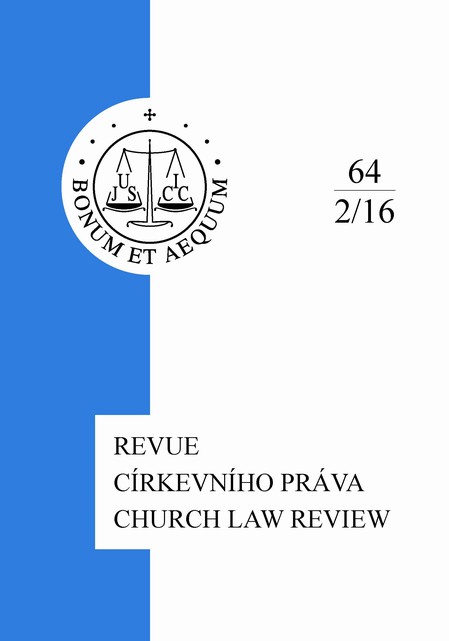
We kindly inform you that, as long as the subject affiliation of our 300.000+ articles is in progress, you might get unsufficient or no results on your third level or second level search. In this case, please broaden your search criteria.


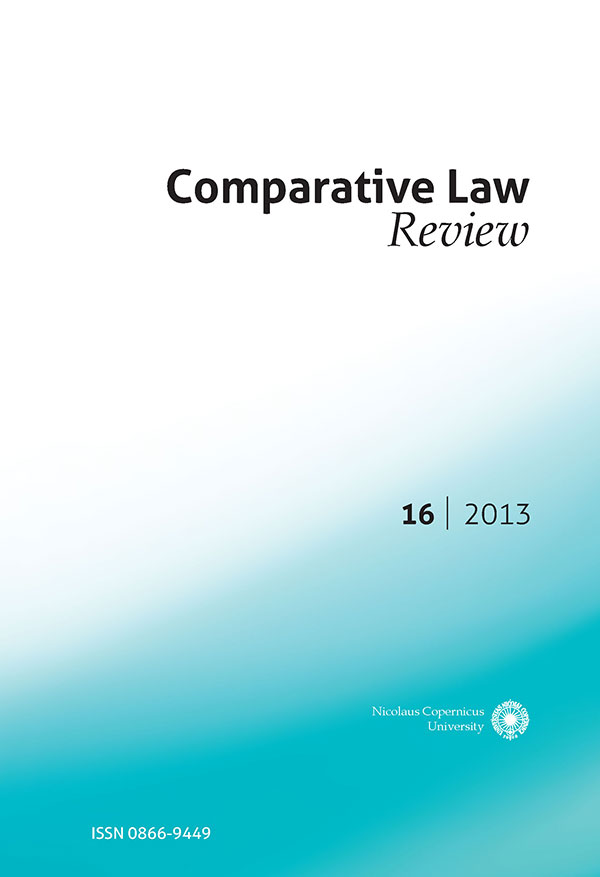
Obgleich das römische Recht nicht mehr gilt, bleibt trotzdem die romanistische Tradition erhalten, die nicht nur als Fundament des europäischen Privatrechts und der Rechtskultur, sondern auch als ethisches und philosophisches Wissen, mit dem Recht untrennbar verbunden, behandelt wird. Die Grundlagen für die Behandlung des römischen Rechts als Symbol eines richtigen und gerechten Rechts kann man bereits bei der römischen Juristen selbst auffinden. Nach ihnen bestanden die Aufgaben der Jurisprudenz darin, in jedem konkreten Fall ständig davon zu trennen, was richtig (aequum) von dem, was unrichtig (iniquum), erlaubt (licitum) von dem unerlaubt (illicitum), sowie was gut und angemessen (bonum) ist. Die Einheit von Ethik und Recht gilt als eins der charakteristischen Merkmale der kreativen Aktivität der römischen Jurisprudenz. Diese Rolle hält ihren Wert ebenfalls heutzutage aufrecht, wenn das gesetzte Recht dominiert. Neben historischen Grundlagen, zeichnet sich noch heutige Bedeutung des römischen Rechts in Form des „Romanismus“ (romanesimo) aus, die zeitlose Idee oder Mythe eines guten, gerechten und humanitären Rechts hieß. In dieser Form als abstraktes Ideal wurde es zum Objekt von ununterbrochenen zeitgenössischen Untersuchungen und Überlegungen.
More...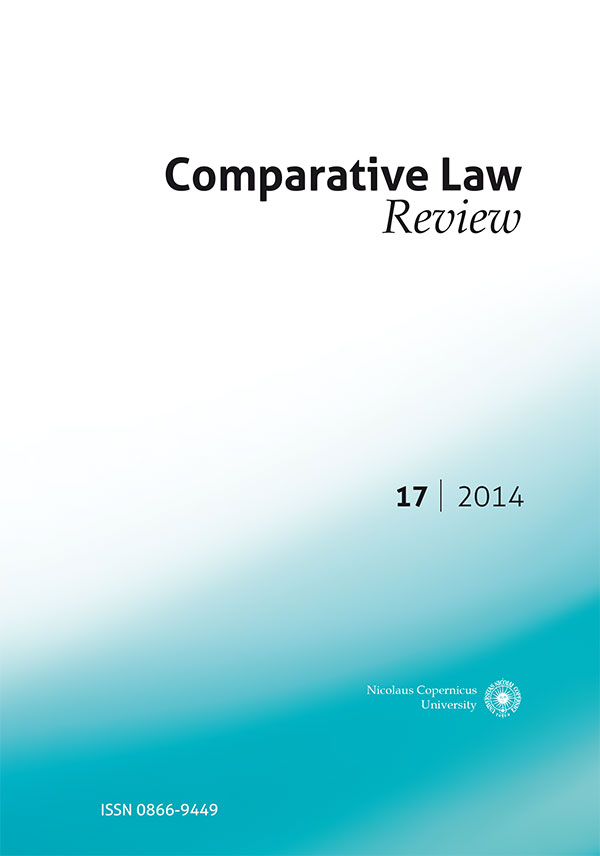
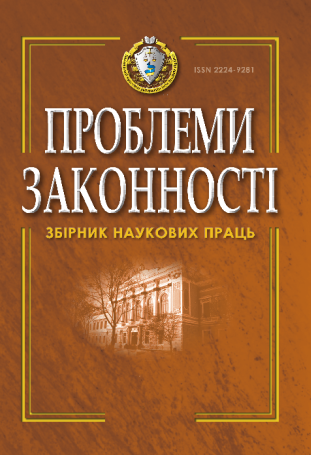
The author analyzes the temporal effect of general legal provisions created by higher judicial authorities in Ukraine. Views on the temporal effect of the latter are based on the appropriate understanding of their nature. The gradual recognition of a certain law-making value of such provisions urges the change of perceptions of their temporal effect, in particular, in terms of application of the rules on nonretroactivity to them to a certain extent. Today, however, many cases of legal provisions of higher courts have retroactive effect which is much a result of interpretation of law. Meanwhile the retroactivity of the Supreme Court opinions is limited by the period for filing petitions for reviewing of the delivered judgments. In other cases, there are no procedural mechanisms for such review. Thus the legislation on this issue is somewhat controversial, which is one of the areas to be improved.
More...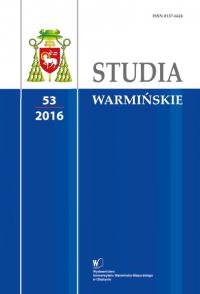
The following article presents the late Roman legal regulations concerning the counterfeiting of money. This kind of crime was prosecuted in the Roman republic on the ground of lex Cornelia de falsis, but under Roman emperors new qualification was added - the counterfeiting of the money stamped in the imperial mints, which was prosecuted under lex Iulia de peculatus. Interestingly, the editors of the imperial codes of laws (Theodosian and Justinian Code) did not put the late imperial constitutions on counterfeiting of money in the titles which were devoted to these two leges. Instead, they created separate title - De falsa moneta (respectively CTh 9.21 and C 9.24). The article discusses the question of terminology used in relation to the techniques of the counterfeiting of money and to the offenders, and, furthermore, the question of criminal liability for forgery, the problem of aiding or abetting, and the circumstances in which the crime was committed. In addition, the author raises the issue of ban of the export of gold outside the Roman state, the prohibition of extraction of the precious metals from the bimetallic money and prohibition of damaging of the gold solidus by the cutting off its edges.
More...
In Roman law the liability for contractual obligations was initially based on the objective premise - the creation of the vinculum iuris (legal bond). During the development of the system of formulary procedure the praetor began to consider the subjective premises of obligation liability, such as voluntas,scientia or ignorantia agens. As for the additional liability in Roman law, this kind of liability may have resulted from the ignorantia, scientia or demonstrated voluntas of head of family/slave owner. These subjective bias’s of the contractual liability diversified its scope - from the lesser degree (based on de peculio, de in rem verso) through tightened (on the base of in tributum vocari)up to most wide scope of liability (in solidum) based on the voluntas of the head of family/slave owner. The voluntas should be always demonstrated, in the case of scientia the declaration of will was needed only in the case of opposition from the head of family/slave owner. Precise differentiation of the subjective bases of the additional liability of superior is the effect of the interpretation of the edict of praetor urbanus by classical jurists.
More...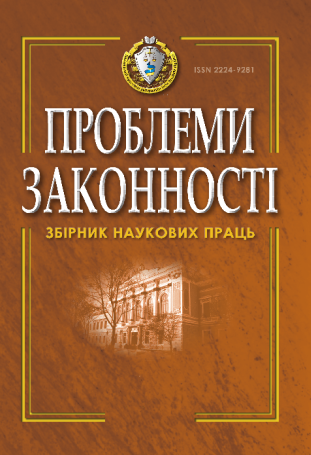
As a social and political association, the Central Council emerged on March 3, 1917 as a result of the February Revolution in Russia. At that time, under the conditions of the First World War, there was a decline in zemstvo economy, increase in an amount of unpaid zemstvo taxes, decrease in a volume of zemstvo income and concurrently increase in spendings. As a consequence, there was a financial failure of zemstvos. Taking this into consideration, they lost public trust and support. Therefore, one of the most important reforms of the Provisional Government of Russia was to be a reform of zemstvo self-government that received a full support of the Central Council. According to the leaders of the Central Council, the reform would provide ukrainization, democratization and modernization of zemstvos, establishing such local authorities on their basis which the Central Council would rest upon in its regional policy. As a result of the reforms and establishing cooperation between the Central Council and zemstvos, they had to be transformed into genuine local authorities and form the foundation of the Ukrainian statehood. In the spring of 1917, zemstvos expressed their support for the Central Council. They started ukrainization of their own institutions, conducted active social, political and educational activities which were aimed at supporting nation creative activities of the Central Council, spreading the ideas of the Ukrainian statehood and carrying out democratic reforms. Zemstvos promoted in the making of the social and political association «Prosvita» (Enlightenment). However, in July 1917, the Central Council started preparations for introduction of a new system of local self-government. According to legislation of the Provisional Government of Russia, in September 1917, democratic elections for councilors of provincial, county and township zemstvos were held. As a consequence of the elections, the process of democratization and ukrainization of zemstvos took place. Not nobles but peasants constituted more than 60% of zemstvo composition. The newly elected zemstvos fully supported the policy of the Central Council. However, the distancing process between the Central Council and zemstvos continued to develop after the democratic elections to zemstvos. This contradictory attitude of the Central Council to zemstvo self-government was due to two main factors. On the one hand, zemstvos actively supported the national state creative process that prompted the Central Council to cooperate with them. However, during the First World War, there was a decline in zemstvo economy, zemstvos lost public trust and support. So, on the other hand, cooperation with zemstvo self-government discredited the Central Council.
More...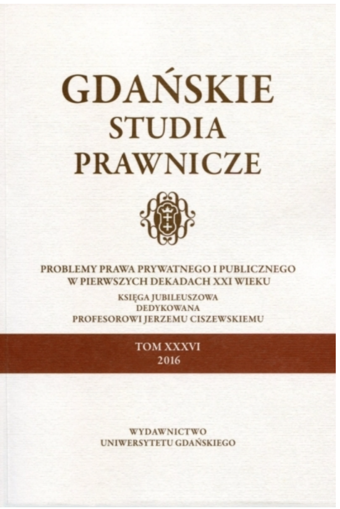
The special courts in the Versailles Free City of Gdańsk (1920 - 1939) included: industrial courts, merchant courts, courts for cases of usury and administrative courts. Their organizationas well as procedures before them were generally determined by law in the Second Reich (1871 - 1918) and the Weimar Republic (1918-1938). Industrial courts in Gdansk were regulated in the Act of 23 November 1922. They settled disputes between employers and employees as well as employees of the same employer. Merchant courts were regulated by the same act. They were state courts established in order to settle disputes concerning work relationships between merchants and their assistants or disciples. Courts for cases of usury existed only from 1926 to 1927 when cases pending before them were transferred to criminal courts. Administrative judiciary in the years 1920-1926 had only one instance and was performed by the temporary Supreme Administrative Court. After this period, it had two instances and consisted of Administrative Court that served as the first instance and the higher Supreme Administrative Court. Its judges were appointed by the Senate, and its term of office was four years. Administrative courts in Gdansk were abolished in 1935.
More...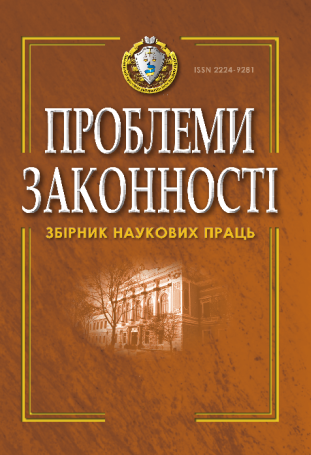
This article is primarily concerned with investigating whether and to what extent legal doctrine actually influences judicial decision-making process in Ukraine and others countries. It is concluded that legal doctrine not only assists judges, but somehow restricts their exercise of discretionary power.
More...
Methodical aspects of the choice of comparative historical and legal research subject are considered.Specific requirements, in particular ones for the choice of the country (countries) of origin of historical and legal objects; for the definition of the objects of comparative historical and legal analysis; for the choice of the type (types) of comparison besides the general requirements to the formulation of the subject of future scientific work related to the definition of its relevance, problematical character and а scientific novelty are analysed. Consecutive consideration of the key parameters influencing the choice of the topic of comparative research in the article is aimed at improving the methodical support of scientific activity in the field of historical and legal comparativistics.
More...
The author has analyzed the temporal effect of the decisions of the Constitutional Court of Ukraine and administrative courts of Ukraine on judicial review of legislation. It is proposed to consider the direction of temporal effect in two aspects: firstly, as the definition of the past, current or future date,starting from which the unlawful legislation ceases to be effective; and secondly, as the effect of the decision on facts, legal rights and obligations, depending on their location in time with respect to the date of entry force of the corresponding decision. It is noted that in these cases the temporal scope of effect of a judgment correlated with the one of temporal effect of acts which ceases to be effective on their basis. The analysis of national legislation and practices has proved that the judicial review decisions of the Constitutional Court of Ukraine have mainly immediate or prospective effect and only in some cases retroactive effect; similar decisions of administrative courts are retroactive in a wider range of cases. The research highlights some defects of domestic legal regulation of the above mentioned issues.
More...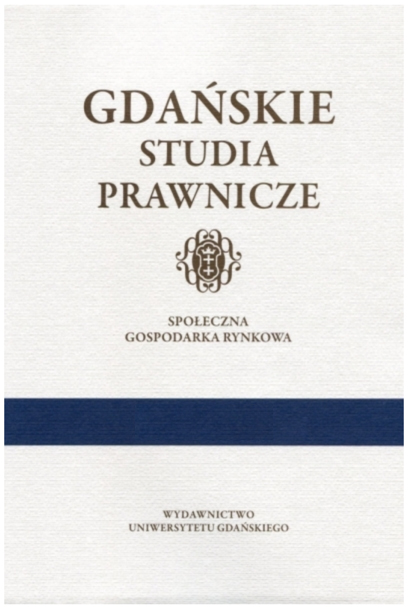
Roman law that serves as a prototype of contemporary legal culture was the most signifcant achievement of Roman society which was socially divided but had some famous individuals who created an outstanding jurisprudence. Its representatives were the first in the world who treated law as an object of scientifc study and their activities gave rise to legal reasoning methods such as analogy or a minor ad maius and reductio ad absurd-um arguments. All of them have been adopted by modern science of law. What is more, the Roman values such as legitimacy (aequitas), usability (utilitas), humanitas, good faith (bonafdes) or effectiveness (effcientia) are the eminent monuments of extraordinary craftsmanship. The recognition of the prototype of acquis communautaire and the joint ius gentium in the achievements of the Roman jurisprudence allows to notice the advantages of the legalculture of ancient Rome. Each of the values (which are many) was expressed by means of specifc legal institutions. For example, procedural dignity was implemented througha number of measures aimed to protect individual’s rights in judicial proceedings (action in civil procedure, the principle of transparency and directness in a criminal procedureor actio iniuriarium in the proceedings before administration). The legal culture of ancient Rome has shown us how Romans created the idea of changing law without organized structure and the tradition of the efficient and radical reforms of law. Bearing in mind the definition of law created by Celsus, who perceived it as an ability to apply what is good and right, it must be recognized that the most important role in this process was played by Roman jurisprudence and officials (mostly Praetor). Jurists used to develop law, and officials applying rational procedures within their power (iurisdictio) used it effectively. It all adds up to the image of an efficient state, in which rational procedures based on fairness are implemented in order to create a rational law and effective governance.
More...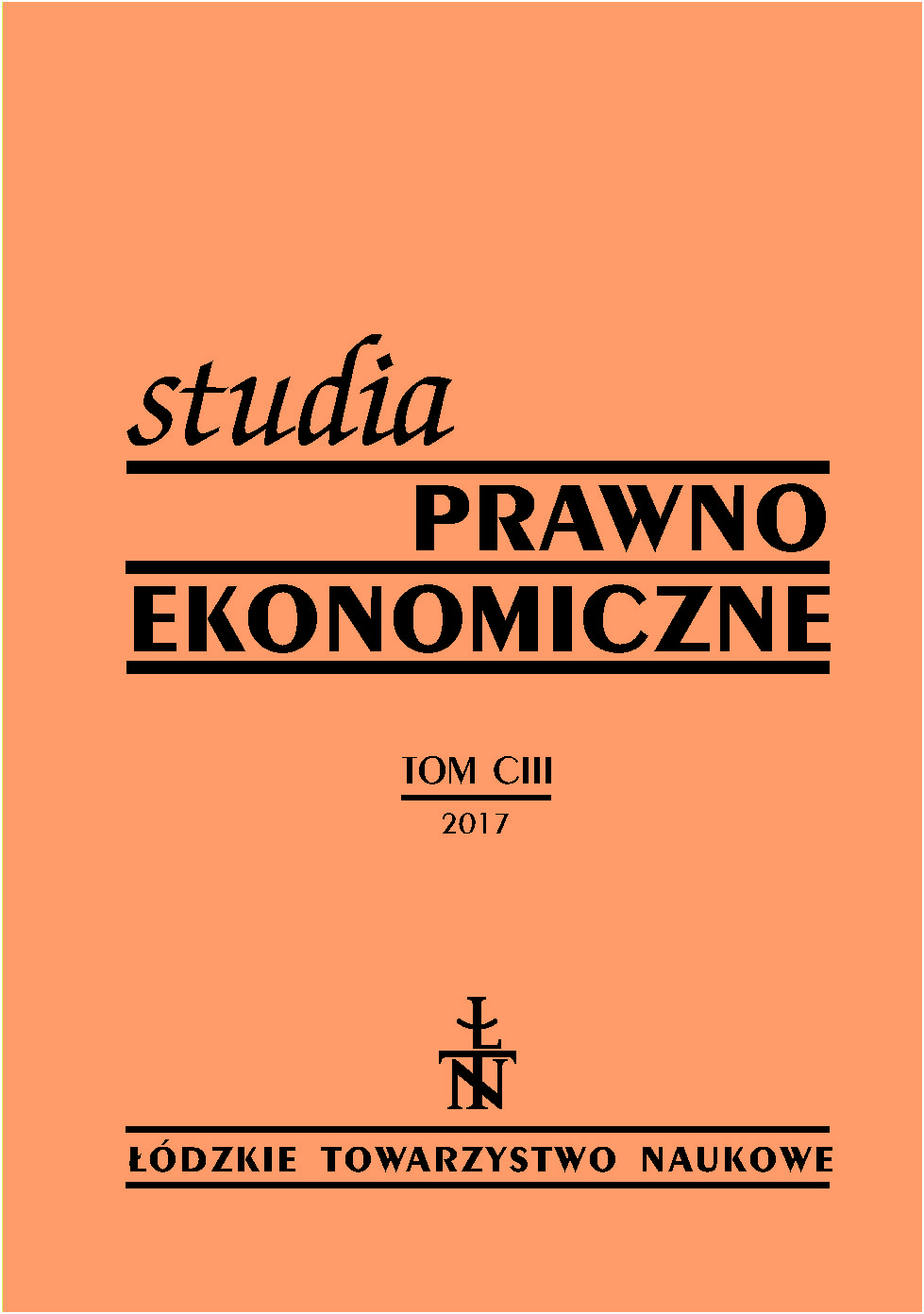
The article concerns the issue of indirect use of the Roman law by Saint Thomas in so-called Treatise on Law. Although Aquinas mentioned the authority of numerous ancient authors – both pagan and Christian – the influence of Roman lawyers’ thought can be found just in the references to the writings of Saint Isidore of Seville.
More...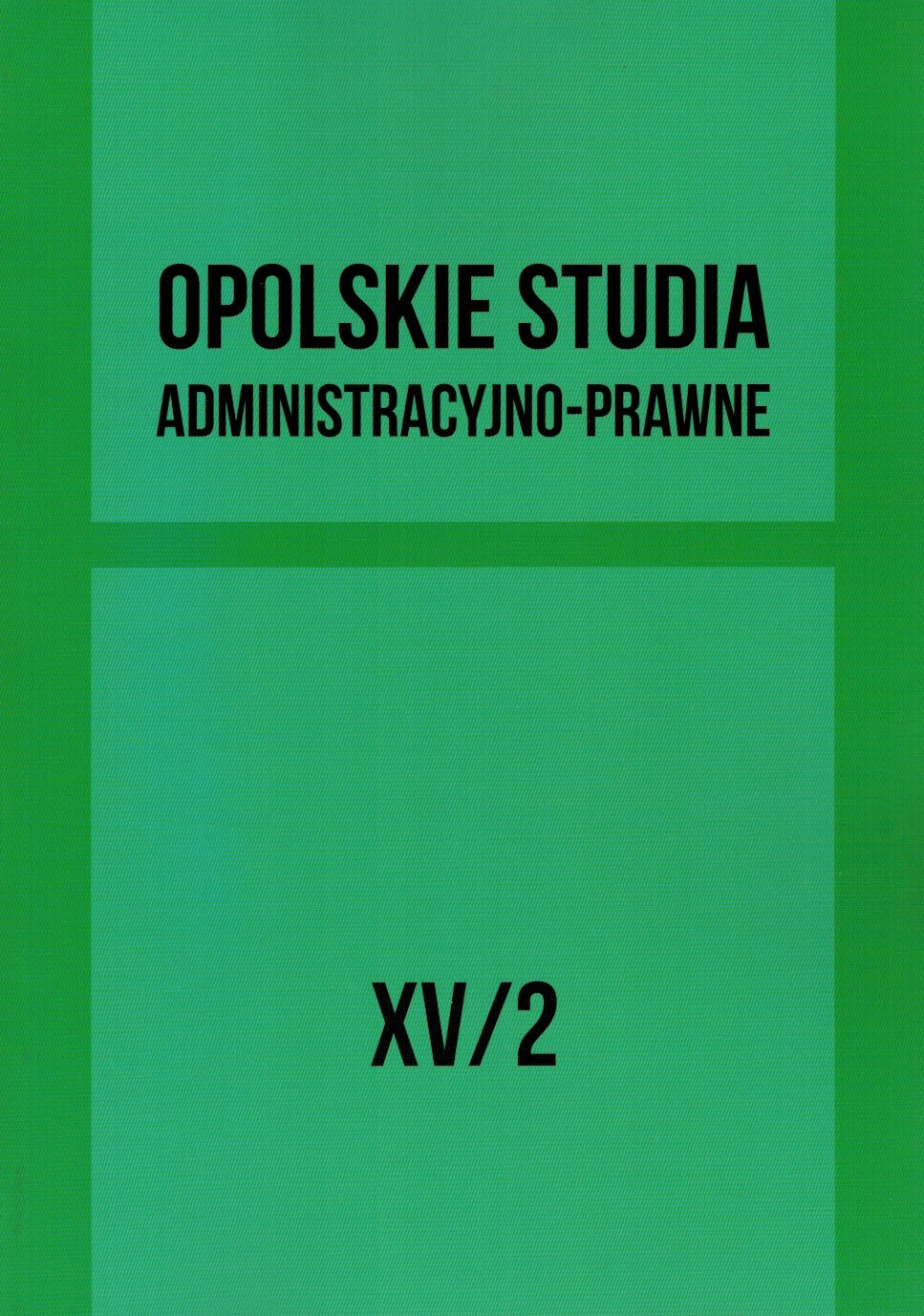
Alexander Tartagnus, considered to be one of the last great representatives of the school of commentators, was also a defender of writing in Latin, which was the language of medieval scholarship. His life is an example of a harmonious combination of academic activities and legal practice, which was most fully manifested in the form of legal advice. His knowledge was used both by judges to assist them in resolving contentious issues and by parties who wanted to better understand their legal position. During his life he wrote seven books of consilia, which established his place among the authors contributing to the development of ius commune. The objective of this article is to present the biography of Alexander Tartagnus, which enlightens the reader not only about this single Bologna master, but also enriches their knowledge of the environment in which he had lived and worked.
More...
The article contains characteristics of the fourteen professors who gained their appointment to the Regius Chair of Civil Law in Oxford and Cambridge in the 18th century. Their academic careers as well as their many out-of-academia duties are described in the article. The analyses of the collected materials allowed the author to assert that the condition of teaching Roman law in the 18th-century England resembled the general crises of the university education in England in the aforementioned epoch. For most of the lecturers the academic posts were more or less sinecures that provided a social prestige and honourable social position. Only the late 18th century brought some changes in the methods of teaching Roman law and in the appointments of the professors. To a fuller extent these changes could not be observed to bring expected effects before the mid-19th century.
More...
In the past, in the same way as it occurs at present, the importance of legal history disciplines was questioned. They were often considered to be useless for lawyers. An interesting example is the situation in the Kingdom of Poland during the first three decades of the 19th century. The aim of the article is to present the role which the Polish Legal History played as part of the education of lawyers at Warsaw University in that period. The study was carried out on the basis of an analysis of manuscripts of the then students’ notes. The lectures were given by Prof. Jan Wincenty Bandtkie.
More...
The evolution, in its pluralistic form, is a constant characteristic of the humankind history: in fact man has successively started discoveries and restarted experiments to improve his wealth and horizons. Law, in its positivist dimension, also is subjected to this evolutionary process. Firstly, because it is a social phenomenon; secondly, because it is a necessary instrument of organization and maintenance of order. Legal systems always tend to change and innovate to meet the needs of order in societies, either for a group or for a minority. The mechanisms and tools that ensured the transition from legal dispositions to others, were often conducted by an innovative idea whose efficiency is proven, even if theoretically, and then has been publicly and officially supported. Recent legal regulations, the so-called unified, harmonized and standardized, in turn have imposed the implementation of legal techniques and concepts to accommodate the global organizational order. These changes are heavily felt because of values and specificities that express its resistance and mistrust toward the new invasive practices, especially if they come from abroad. For states the issue is about sovereignty, whereas for individuals the question is related to the identity and the sacred that united them in a political and social model.
More...
One of the most important legal problems discussed in the 19th century by German lawyers was that of state liability due to damages resulting from illegal acts of its officials. An influential forum of exchange of ideas was the German Association of German Jurists which organized all-German congresses to solve legal questions in order to promote German unity. Although the problem of state responsibility was discussed at some of the Association congresses in the 19th century, the most interesting was that held in Kiel in 1905. It was due to the fact that many German states had at that time legal regulations concerning state liability, but they were quite different. That generated many complications, making realization of a legal unity within the German Reich difficult. Two proposals for solving this situation were presented at the Congress in Kiel by Otto von Gierke and Rudolf von Herrnritt. Their ideas constituted bases for the discussion which followed. The paper presents the discussion on the state liability, which took place at the Congress in Kiel.
More...
Albert Hesse was one of the most eminent German professors of economic law and statistics. He was educated at the University Hale-Wittenberg, but spent most of his life, as a researcher in Wroclaw (1921–1945). In the period of Weimar Republic, he became one of the most prominent specialists, in his fields of research. He was engaged in various activities, connect ed with international organisations and on the forum of the League of Nations. What is more, he was also, initially, a worker, and then the co-director of East Europe Institute in Wroclaw, though in 1933, after the Nazis had taken over the power, he lost this position. The time of the Third Reich, was the beginning of Hesse’s end as a researcher as threads of the national socialist ideology appeared more and more often in his academic work, which contributed to a decline in his prestige. Nonetheless, there was no solid evidence of his possible harmfulness to anybody, which allowed him to continue teaching in the postwar Germany.
More...